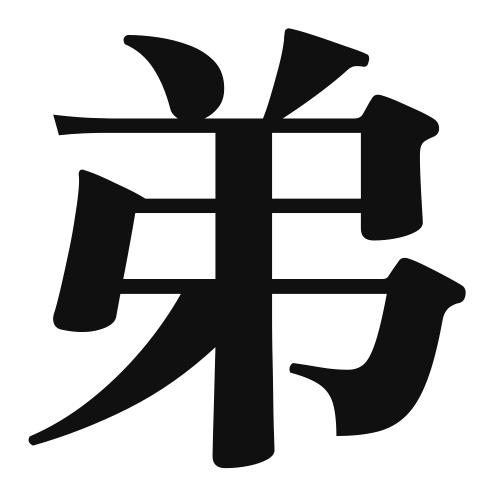1. Overview of Meaning
The kanji “弟” (pronounced “otōto”) means “younger brother.” It is used to refer to a male sibling who is younger than oneself.
2. Formation and Radical
Formation of the Kanji: The kanji “弟” is a phonetic-ideographic character (形声文字). It combines the radical for “child” (子) with a phonetic component that suggests its pronunciation.
Radical: The radical of “弟” is “子” (child), which is often associated with family and youth.
3. Examples of Usage
Common Words and Phrases:
- 弟 (otōto) – younger brother
- 兄弟 (kyōdai) – siblings (brothers)
Example Sentences in Daily Conversation:
- 私の弟はサッカーが得意です。 (Watashi no otōto wa sakkā ga tokui desu.) – My younger brother is good at soccer.
- 兄弟で遊びに行きました。 (Kyōdai de asobi ni ikimashita.) – I went out to play with my brothers.
4. Synonyms and Antonyms
Similar Kanji:
- 兄 (ani) – older brother. This kanji refers to a male sibling who is older than oneself.
Antonyms:
- 姉 (ane) – older sister. This kanji refers to a female sibling who is older than oneself.
- 妹 (imōto) – younger sister. This kanji refers to a female sibling who is younger than oneself.
5. Cultural and Historical Background
Relation to Japanese Culture: The concept of family and sibling relationships is significant in Japanese culture, where respect for older siblings and care for younger ones are emphasized.
Proverbs and Idioms:
- 兄弟は助け合う (Kyōdai wa tasukeau) – Siblings help each other. This phrase highlights the importance of support among family members.
